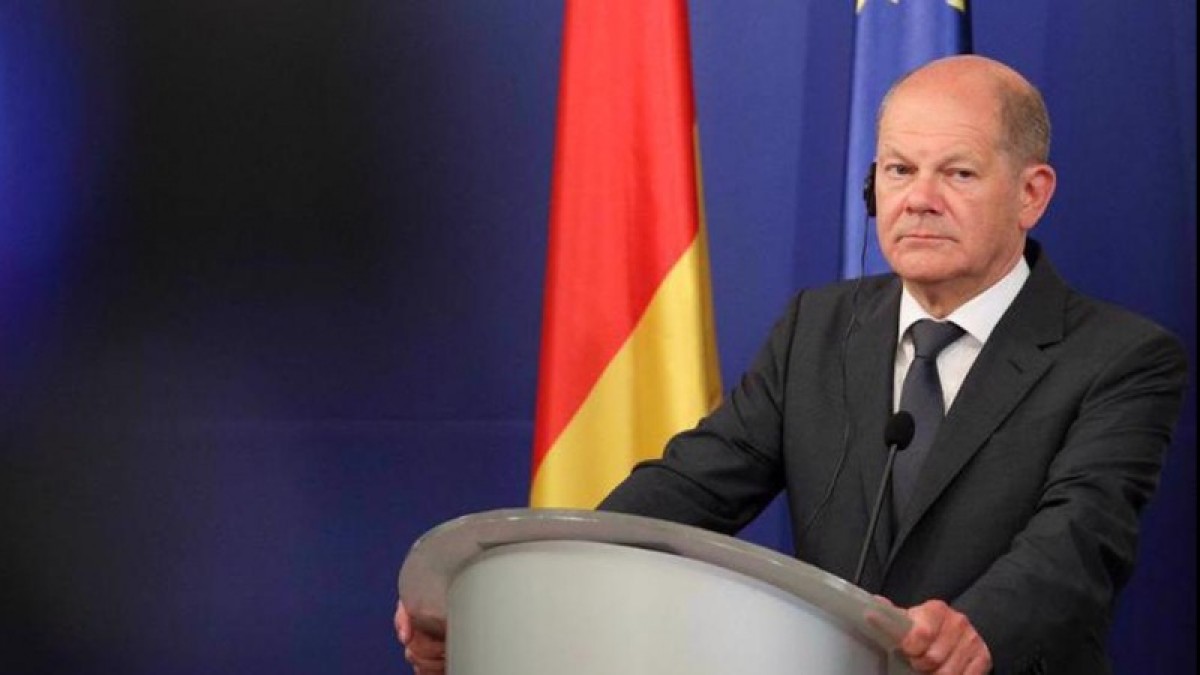 59
59
The negative effects of the shortage of energy, especially gas, are gradually being seen in the German economy and the lives of households who are called upon by the government to restrict their consumption.
As eight months have passed since the start of the war in Ukraine, the Old Continent is increasingly mired in an unprecedented energy crisis. Germany, Europe’s largest economy, is facing a cut in natural gas from Russia, which supplied more than half of its fuel needs. To that effect, the Federal Network Agency has urged households and businesses to turn down the heat as the country attempts to conserve supplies during the energy crisis, Bloomberg reported on Friday (December 9).
The report states that industrial gas consumption in the country fell by 12% in the week to last Sunday, while household and business consumption fell by 13%. The news comes as the energy regulator previously said Germany must cut its gas consumption by at least 20% to help make up for the loss of supply from Russia. Citizens should “perhaps not turn the heating on full blast and think carefully about which rooms need to be heated”, BNetzA President Klaus Mueller told the public broadcaster ARD on Friday.
“Yesterday’s numbers weren’t that good,” Mueller said, adding that “if it was just a small weekly deviation, we might forget about it.” He promised “to watch what happens in the next few days”, but warned that “we should not treat this subject lightly”. According to Mueller, Germany currently receives gas from Norway, Belgium, the Netherlands and “a little” from France. It will get more via the liquefied natural gas (LNG) import terminals, which the country has started to build.
Germany would miss around 50 billion cubic meters of gas in annual deliveries due to reduced imports from Russia. The country’s previous attempts to diversify gas supplies have contributed to the current energy crisis. Pressure from EU sanctions, maintenance issues, as well as the sabotage of Nord Stream pipelines, have further exacerbated the problem.
According to German Foreign Minister Annalena Baerbock, the share of Russian gas imports into the country has recently fallen to 6-8%. In 2021, more than half of Germany’s gas supply came from Russia. While Germany is busy equipping the Ukrainian army with various weapons, the far right is getting stronger and says it is against the war in Ukraine.
Demonstrations, which take place every Monday, have sprung up across East Germany. A crowd of 600 gathered in the street in the small town of Zittau, carrying flags of far-right groups. The crowd held up posters protesting the high cost of living and demanding an end to the arming of Ukraine and the resumption of gas imports from Russia, calling the sanctions “economic suicide”.
“How did an ideological elite manage to completely destroy the livelihoods of such a well-educated people as the Germans? Karin Viehweg, a far-right activist in her 50s, shouts over the loudspeaker at the end of November, winking at the cost of living crisis and Germany’s leftist government led by the Chancellor Olaf Scholz. Protests have increased in recent months as anger mounts in Germany amid the economic fallout from Russia’s invasion of Ukraine. The Alternative for Germany, a far-right party, is a regular at these demonstrations. The party has opposed arming Ukraine or sanctioning Russia – a stance that resonates with some voters as polls for the far-right German party AfD hit highs. near-record levels nationally and look set to come out on top in some state elections in 2024.
Comment
Post a comment for this article